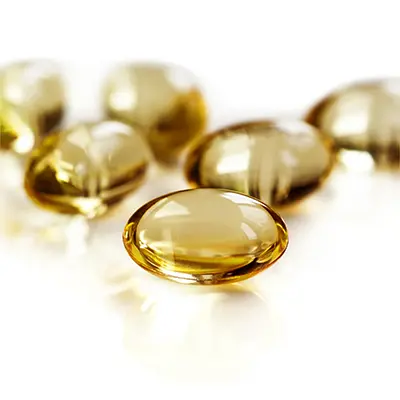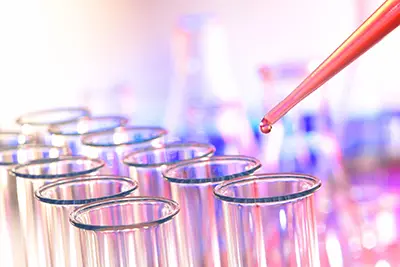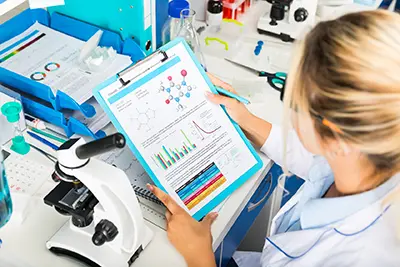The Sunshine Vitamin: A Ray of Hope for Moderating COVID-19 Symptoms
Sometimes, we have good news worth sharing; this is one of those cases. Upon seeing a new study promoted by CTV News, I was compelled to share it with my friends and family, particularly my elderly parents. I am very pleased to share this with Flourish readers.
Recent studies have found an association between vitamin D deficiency and the severity of COVID-19 symptoms.
Our Situation
The recent global outbreak of COVID-19 has impacted everyone, especially the elderly. There are currently no drugs or other therapeutics, nor vaccines approved by Health Canada to treat or prevent the novel coronavirus. In fact, the only proven effective strategy for dealing with COVID-19 is avoidance (social distancing, hand washing, and quarantine).
What Is Vitamin D?
Vitamin D3, or “the sunshine vitamin,” is a prehormone which, upon conversion to its active form, has an array of positive physiological activities within the body. Vitamin D is well known for its role in calcium absorption and deposition within the skeletal system (bones and teeth).
The well-established role of vitamin for immunity, in helping prevent and treat seasonal influenza, and the mechanisms by which this is achieved, have resulted in considerable interest in vitamin D possibly having a role in the fight against COVID-19.
Vitamin D Deficiency Is an Issue
Canadians and people living in other higher-latitude countries have varying degrees of vitamin D deficiency. As we age, our skin becomes less effective in producing vitamin D. This may explain the correlation of higher mortality from COVID-19 amongst the elderly, who are chronically vitamin D–deficient.
Current guidelines call for vitamin D to be between 75 and 225 nmol/L (Aloia 2008, Hughes 2009). Almost all Canadians are deficient according to these recommendations.
In 2009, a panel of 16 scientists and physicians issued a call to action urging an increase in the recommended intake of vitamin D to 2,000 IU/d and raising the minimum blood level to 100–150 nmol/L (Garland 2009).
 Promising Developments
Promising Developments
One study (Daneshkhah 2020) suggests that vitamin D may reduce COVID-19 severity and save lives by suppressing the cytokine storm in COVID-19 patients. The study found that patients from countries with high COVID-19 mortality rates, such as Italy, Spain, and the UK, had lower levels of vitamin D compared to patients in countries that were not as severely affected.
Another study (Alipio 2020) found that vitamin D status is significantly associated with clinical outcomes. They reported that for each standard deviation increase in serum levels of vitamin D, there was an eight-fold increase in the odds of having mild v. severe symptoms, and a 20-fold increase in the odds of having a mild v. critical outcome.
Researchers in Edmonton are among several groups around the world looking into whether there is any benefit of boosting vitamin D levels in a patient’s blood as a means of protecting them against COVID-19. Dr. Aldo J. Montano-Loza, an associate professor at the University of Alberta, is preparing to launch a study of at least 70 Albertans who contracted COVID-19 to see if their vitamin D levels put them at risk of severe infection and whether boosting these levels will help their condition.
Summary
Vitamin D provides a wide spectrum of benefits spanning both prevention and treatment of diseases. It was even included as a suggestion in the Canadian Food Guide for many years. Vitamin D is inexpensive and is available to everyone. Its safety is considered exceptionally high at approved doses. Vitamin D has been clearly proven to broadly impact immune function in a manner that is reproducibly beneficial. Specific evidence from controlled human intervention trials shows vitamin D supplementation to effectively prevent or treat seasonal influenza.
Preliminary evidence is showing individuals who test positive for COVID-19 have profoundly lower levels of the vitamin in their blood, compared to people who test negative for the virus. A rapidly increasing number of scientists are calling for vitamin D supplementation as an important tool in the fight against COVID-19.
 Vitamin D and COVID-19—2020 Science
Vitamin D and COVID-19—2020 Science
The evidence is promising, but preliminary. It demonstrates correlation, and further investigation is required to show causality.
Alipio (2020) evaluated the databases of three hospitals in South Asian countries. A retrospective multicentre study of 212 cases with laboratory-confirmed infection of SARS-CoV-2 was conducted. Data pertaining to clinical features and serum 25(OH)D levels were extracted from the medical records.
They reported that for each standard deviation increase in serum levels of vitamin D, there was an eight-fold increase in the odds of having mild v. severe symptoms and a 20-fold increase in the odds of having a mild v. critical outcome.
 D’Avolio and colleagues (2020) evaluated the vitamin D status of 107 people who underwent testing for COVID-19. Twenty-seven of the participants tested positive.
D’Avolio and colleagues (2020) evaluated the vitamin D status of 107 people who underwent testing for COVID-19. Twenty-seven of the participants tested positive.
The patients who tested positive had an average blood vitamin D level of 27.7 nmol/L. The average vitamin D blood level of the people who tested negative was 61.4 nmol/L.
Daneshkhah and colleagues (2020) used a surrogate marker of vitamin D, C-reactive protein (CRP), and evaluated countries upon reaching a case number threshold of at least 10,000.
Their model showed that the risk of developing severe COVID-19 illness among individuals with severe vitamin D deficiency was 17.3%, while the risk of developing severe COVID-19 illness among individuals with normal vitamin D levels was 14.6%, a reduction of risk of 15.6%.
Grant and colleagues (2020) compiled an excellent review of impact of vitamin D on immunity, evidence of benefit to seasonal influenza, mechanisms of disease caused by COVID-19, and the likely role vitamin D supplementation would play in prevention and treatment.
They conclude their review by recommending adults to take 10,000 IU/d of vitamin D for one month, followed by 5,000 IU/d thereafter.
Hribar and colleagues (2020) did a literature review to determine the relationship between vitamin D, Parkinson’s disease (PD), and COVID-19.
Authors are calling for all elderly individuals to supplement with 2,000–5,000 IU/d of vitamin D for potential protection offered against COVID-19.
The number of research teams calling for similar action is growing daily (Caccialanza 2020, Jakovac 2020, Kara 2020, McCartney 2020).
The information in this article is not intended or implied to be a substitute for professional medical advice, diagnosis, or treatment. All content is for informational purposes only. This is not a recommendation for any products nor dosing regimens. Always seek the guidance of your doctor or other qualified health-care practitioner with any questions you may have regarding your health or a medical condition.
Relevant Studies
- Alipio, M. “Vitamin D supplementation could possibly improve clinical outcomes of patients infected with coronavirus-2019 (COVID-19).” Available at SSRN: https://ssrn.com/abstract=3571484 or http://dx.doi.org/10.2139/ssrn.3571484
- D’Avolio, A., et al. “25-Hydroxyvitamin D concentrations are lower in patients with positive PCR for SARS-CoV-2.” Nutrients, Vol. 12, No. 5 (2020): E1359.
- Caccialanza, R. et al. “Early nutritional supplementation in non-critically ill patients hospitalized for the 2019 novel coronavirus disease (COVID-19): Rationale and feasibility of a shared pragmatic protocol.” Nutrition, Vol. 74 (2020): 110835. [Epub ahead of print]
- Daneshkhah, A., A. Eshein, and H. Subramanian. “The role of vitamin D in suppressing cytokine storm of COVID-19 patients and associated mortality.” Preprint on medRxiv before peer review. May 18, 2020.
- Garland, C.F., et al. “Vitamin D for cancer prevention: Global perspective.” Annals of Epidemiology, Vol. 19, No. 7 (2009): 468–483.
- Grant, W.B., et al. “Evidence that vitamin D supplementation could reduce risk of influenza and COVID-19 infections and deaths.” Nutrients, Vol. 12, No. 4 (2020): 988.
- Hribar, C.A., P.H. Cobbold, and F.C. Church. “Potential role of vitamin D in the elderly to resist COVID-19 and to slow progression of Parkinson’s disease.” Brain Sciences, Vol. 10, No. 5 (2020): E284.
- Hughes, D.A., and R. Norton. “Vitamin D and respiratory health.” Clinical and Experimental Immunology, Vol. 158, No. 1 (2009): 20–25.
- Jakovac, H. “COVID-19 and vitamin D—Is there a link and an opportunity for intervention?” American Journal of Physiology. Endocrinology and Metabolism, Vol. 318, No. 5 (2020): E589.
- Kara, M.et al. “‘Scientific strabismus’ or two related pandemics: COVID-19 & vitamin D deficiency.” The British Journal of Nutrition, 2020 May 12: 1–20. [Epub ahead of print]
- McCartney, D.M., and D.G. Byrne. “Optimisation of vitamin D status for enhanced immuno-protection against COVID-19.” Irish Medical Journal, Vol. 113, No. 4 (2020): 58.
- Rees, J.R., et al. “Vitamin D3 supplementation and upper respiratory tract infections in a randomized, controlled trial.” Clinical Infectious Diseases, Vol. 57, No. 10 (2013): 1384–1392.
 Neil Abbott, BSc, MBA
Neil Abbott, BSc, MBA
Passionate about nature, he is dedicated to bringing the science behind natural health solutions to life.

